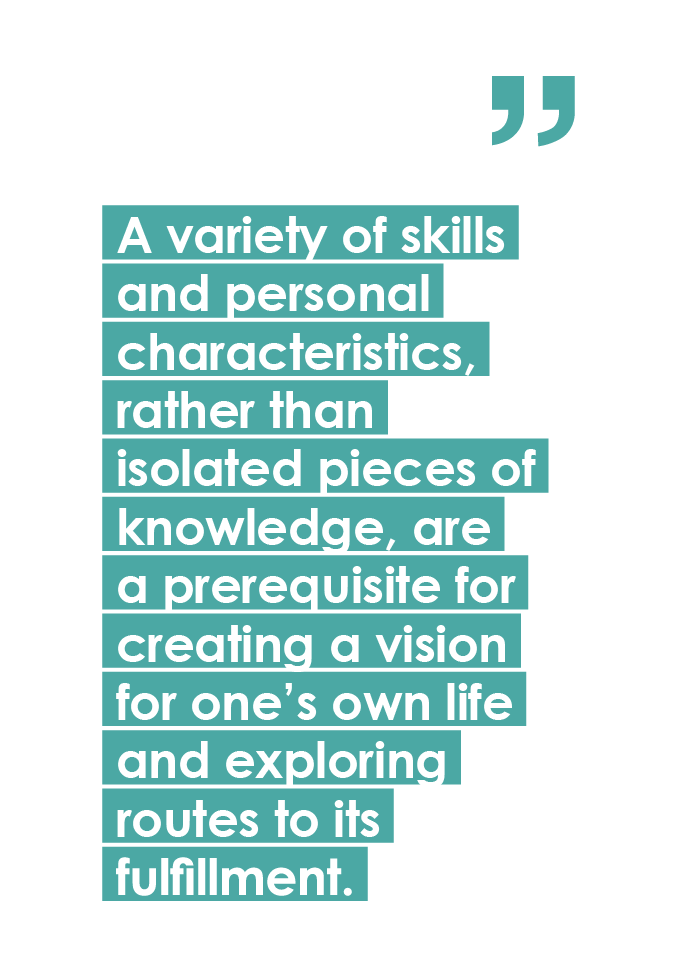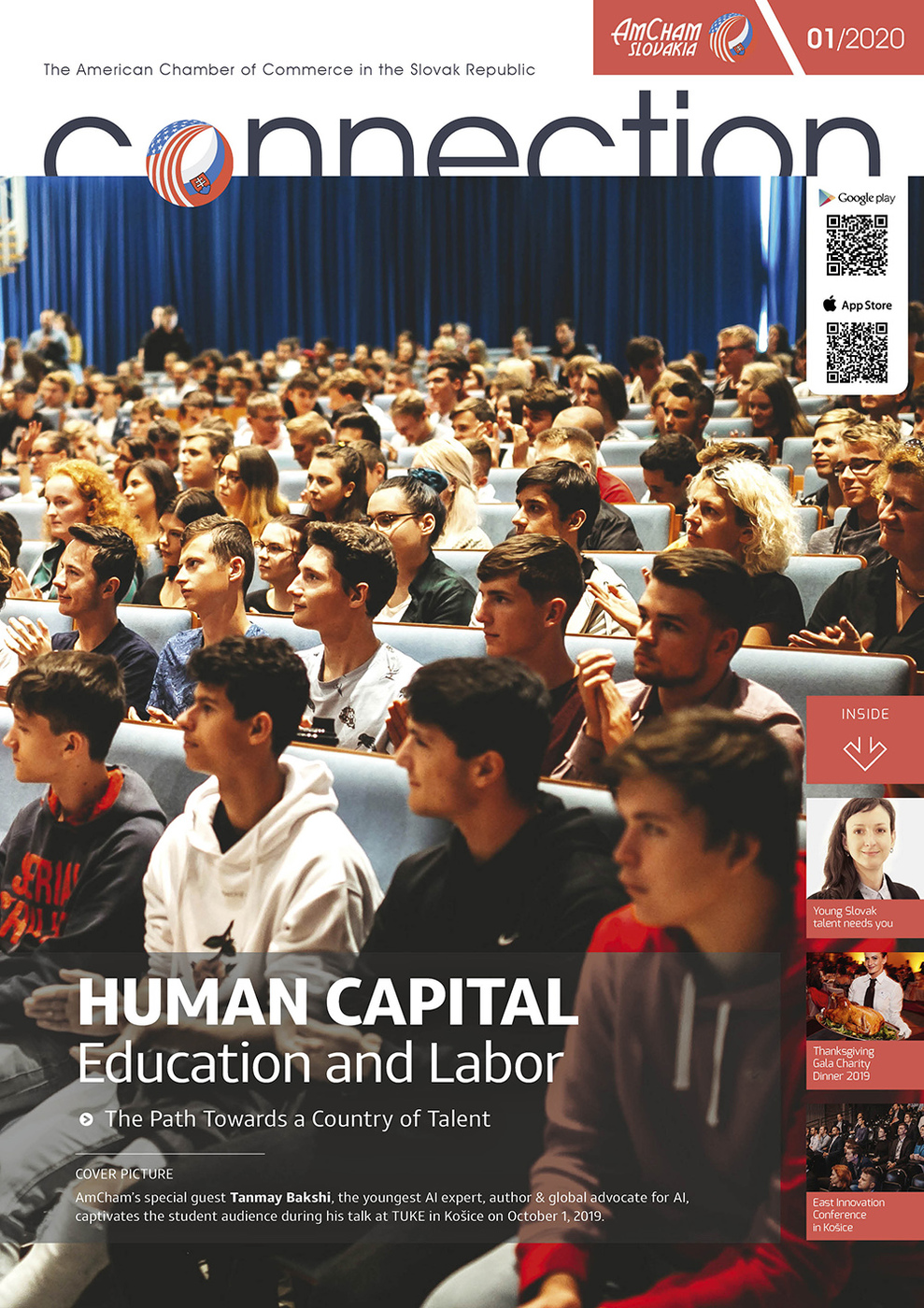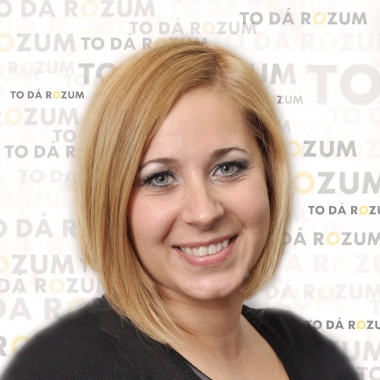When development domains in student learning from pre-primary to tertiary education are considered, the highest systemic and targeted focus is placed on knowledge in various school subjects. Insufficient attention is given to the holistic personal development of students. The Learning Makes Sense findings indicate that less attention is paid to developing the personal characteristics of students (motivation to work and study, communication, entrepreneurship, creativity, etc.), along with ethical behavior, active citizenship, critical thinking and learning in context.
Based on the data analysis, one of the main findings is that kindergartens and special primary schools tend to create conditions for the holistic personal development of children. However, primary and secondary schools focus their attention on attaining literacies (reading and financial). Secondary school students confirmed that secondary schools place emphasis mostly on knowledge in their school subjects, adding that they do not consider the knowledge provided to be up-to-date. The survey findings reveal that while respondents from private higher education institutions perceive that their school develops them in domains such as motivation and the ability to learn, at public higher education institutions emphasis is put on knowledge and mathematical and logical thinking.
The education content, and its holistic and up-to-date approach (or lack of therein) in secondary and tertiary education, is also reflected in the responses of HR professionals. They expressed their views on how schools prepare their students in relation to employers’ requirements. Employees with low, middle and high qualifications only partially fulfill the requirements of employers. Moreover, they fall furthest below expectations in precisely those domains which are most demanded (motivation to work, ability to learn). Most job applicants actually meet the formal education criteria, yet employers put the lowest emphasis on that in the hiring process.
The data from the survey indicate that at all education levels, the prevailing teaching method is lecture, together with a discussion about the topic. In the survey, secondary school students noted that another frequent teaching method is dictating notes. Higher education students responded that their teachers also read from textbooks aloud in classes. Active teaching methods are only applied to a limited degree. When teaching methods are explored, teachers mostly responded that their students work in small groups, but this runs contrary to the finding that lecture and discussion about a topic are the most preferred teaching methods, indicating a preference for teacher-centered approaches. Teachers at primary and secondary level education who apply active learning methods reported several challenges and barriers to this approach. A frequent barrier perceived is a lack of time for more complex activities, related to 45-minute classes. They also experience a lack of methodological and professional support in their own experiments with new teaching methods.
 In the Learning Makes Sense questionnaire, teachers claimed that to assess the knowledge and skills attained by learners, they mostly use announced written tests or oral evaluation. Using these tools, they are mainly assessing memorized knowledge. One positive finding is that almost one in four teachers also assesses students based on presentation of school projects. Paradoxically, despite student assessment at schools being mostly based on memorized knowledge, the students themselves responded in the survey that they are satisfied with the way they are being assessed. It can be argued that these students do not have experience with any other assessment methods.
In the Learning Makes Sense questionnaire, teachers claimed that to assess the knowledge and skills attained by learners, they mostly use announced written tests or oral evaluation. Using these tools, they are mainly assessing memorized knowledge. One positive finding is that almost one in four teachers also assesses students based on presentation of school projects. Paradoxically, despite student assessment at schools being mostly based on memorized knowledge, the students themselves responded in the survey that they are satisfied with the way they are being assessed. It can be argued that these students do not have experience with any other assessment methods.
Conclusion
The content of education is not set up in such a way that would enable learners to gain important knowledge and develop the skills they need at the same time. The learning environments do not support active exploration, nor do they develop critical thinking, ethical behavior, creativity, co-operation or active citizenship. The education content and teaching methods mostly focus on acquiring a set of subject-based knowledge at primary and grammar schools, or knowledge in a specific field of study at secondary schools and higher education institutions. The development of soft skills, critical thinking, creativity, co-operation, ethical behavior and active citizenship is not systematic, and only a small proportion of schools consider it a priority. The focus on acquiring isolated pieces of knowledge is further strengthened by the teaching methods applied at schools, where students are mostly passive recipients of information. The underdevelopment of skills such as learning strategies, communication and co-operation with other people, openness to change, resilience, problem solving, active citizenship and ethical behavior, can consequently form a barrier to nurturing a successful personal, civic and work life. A variety of skills and personal characteristics, rather than isolated pieces of knowledge, are a prerequisite for creating a vision for one’s own life and exploring routes to its fulfillment. This is the reason why education content, teaching methods and assessment approaches should change in such a way that they contribute to complex personal development, and develop the knowledge and skills conducive to a meaningful life.
The complete analysis of the survey data can be found at: analyza.todarozum.sk




Follow us